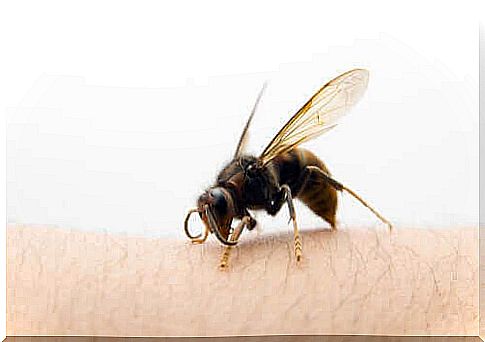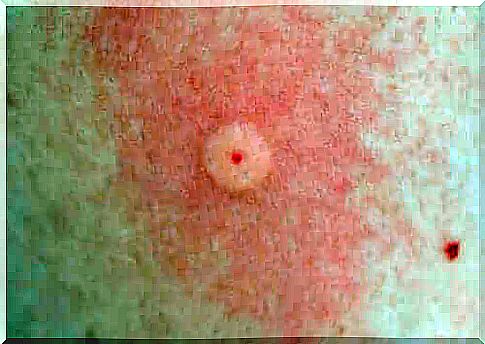What To Do After Asian Hornet Sting

An Asian hornet’s sting is an insect sting that must be handled carefully. In most cases, it has no serious consequences. However, it can lead to serious complications in some cases. Some people have even died from this sting.
The Asian hornet was first discovered in Europe in 2004. It gets its name from the fact that it comes from Southeast Asia. However, it is also known as the yellow-legged hornet. The insect spread to other countries on the continent, reaching Europe in 2010. There have also been some recent reports about it in the United States.
The Asian hornet sting releases more venom than a common hornet sting. The outcome depends on the person who was attacked. If people are allergic to these insects, then the situation can be serious.
The sting of an Asian hornet

It is important to note that the Asian hornet sting only causes death in 0.08% of cases. This is a very low figure. Yet in all people attacked by this species it causes a more painful reaction than that of other hornets. This is because he is bigger and has more poison.
The Asian hornet, its scientific name is Vespa velutina, is an insect that can measure up to 3.5 centimeters. Its most characteristic feature is its size and black body, which distinguish it from European hornets. Unlike bees, hornets can sting someone multiple times.
The biggest risk from an Asian hornet sting is that it can trigger an allergic reaction from the immune system. The complexity is that in most cases it is not yet known whether or not this type of reaction will occur in a particular person. No test can predict the allergy.
Effects of the stitch
The first thing that causes an Asian hornet’s sting is a sharp pain, similar to the prick of a large pin. The person who is stung may then experience an intense itch, similar to the itch caused by a burn. A large part of the skin then swells and one can experience pain for an average of 24 hours.
One of the risks is that these insects attack sensitive areas, such as the mucous membranes of the mouth, eyes or nose. Also keep in mind that the Asian hornet releases a pheromone from its sting, which encourages the rest of the hive to attack.
If there is an allergic reaction, there is a risk of anaphylaxis between 30 and 60 minutes after the Asian hornet sting. This reaction has four degrees:
- Grade I. There is widespread rash, itching, anxiety and discomfort.
- Grade II. Mucosal inflammation, chest tightness, abdominal pain, nausea, vomiting, diarrhea and dizziness.
- Grade III. Difficulty breathing, swallowing and making noise. Confusion and a feeling of dying.
- Grade IV. All of the above, plus hypotension, fainting, incontinence, bluish discoloration of the skin and loss of consciousness.
How to deal with an Asian hornet sting

Asian hornets only attack when they feel threatened. So you must avoid approaching the hive at all times. You should also not try to kill or harm them when they appear.
It is important to be careful when exploring the bushes or places filled with accumulated wood. The best way to avoid trouble is to stay away from them.
If an Asian hornet stings you, it is advisable to apply a cold compress to the affected area. This will help to reduce inflammation and pain.
You can also apply vinegar compresses to get the same effects. If there is a lot of discomfort, it is advisable to apply a cream containing corticosteroids and oral antihistamines and, if necessary, to take oral corticosteroids.
An allergic reaction to the sting is a medical emergency that must be addressed in the shortest possible time. If you have a history of these types of allergies, you should go to the hospital as soon as possible.
The same is true when you detect a sudden reaction. Although only 3% of people are allergic, it is not certain whether or not you belong to that group.









